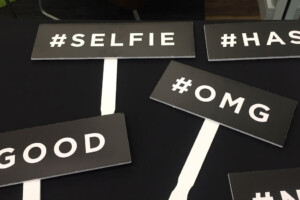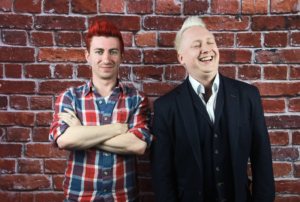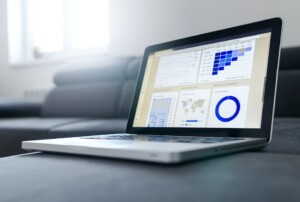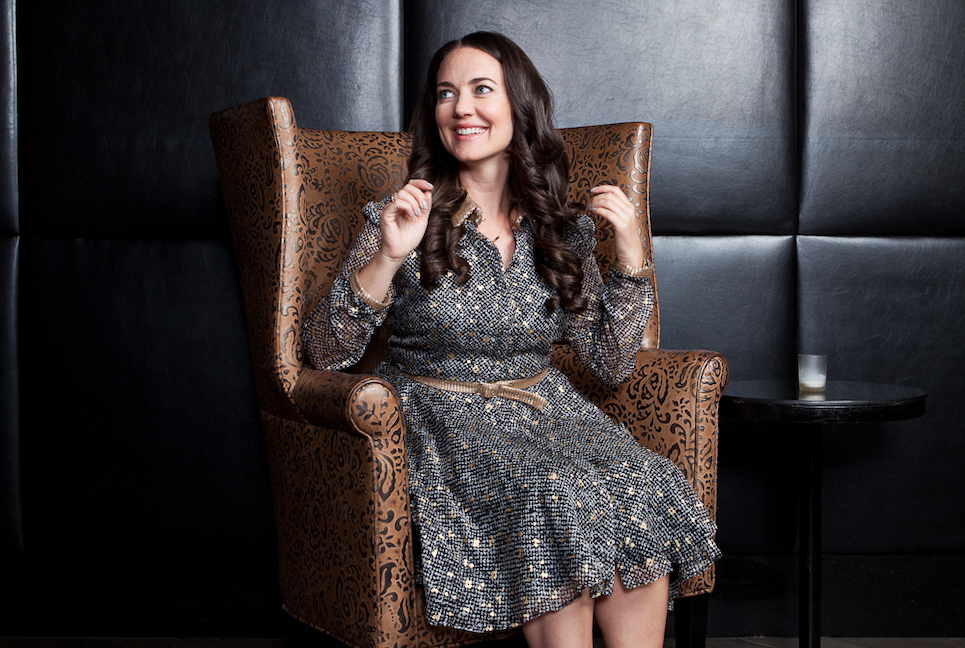
Humanity has failed its planet remorselessly.
Freshwater resources have diminished by 25%, oceanic dead zones have ballooned, and we’ve produced 6 billion tonnes of plastic waste since 2015. We buy a million plastic bottles every minute. The resulting fragments of waste have become suspended just beneath the ocean’s surface, where they’re consumed by marine creatures and, ultimately, people. So goes the lifecycle of toxic waste.
Humanity is perched somewhere between enlightenment and extinction, and we need thousands of eco-heroes to tilt us towards a more hope-filled future. Sarah Kauss is one such warrior, and her efforts to hack away at plastic usage has grown into a $100 million dollar business named S’well. You could call it a bottle production company, but if that were true, The Wall Street Journal and Forbes would be speaking about more interesting things. The truth? S’well is a movement, and the dying world is paying attention to it.
If you think a single trendy product can’t carry a revolution, you haven’t met Sarah Kauss. Her reusable bottle, which keeps drinks cold all day, has become an icon of social advocacy. She’s built her brand on the back of enough ecological causes to make UNICEF blanch. Its revenue brings clean water to the most vulnerable children in the world. It fights alongside cancer research groups, plants thousands of trees each year, and is leading humanity towards an AIDS-free day.
S’well is as famous for its causes as it is for refusing to seek out angel investors when it was still a sparkle in Sarah Kauss’ eye. She pumped $30,000 of her own money into the startup instead, then patiently nudged it towards success.
Her far-sightedness has become an inextricable a part of her brand, which is why S’well products aren’t bottles. They’re hydration accessories. S’well is not a business. It’s a picture of the future. Kauss is not a social entrepreneur. She’s a dreamer, and her goal is to displace 100 million bottles by 2020.
Overcoming Hopelessness
She’s no stranger to hopelessness, and that’s precisely the reason she’s managed to bring hope to a situation that seemed doomed from the start. Humanity’s race towards its own extinction has gathered enough inertia to carry it towards its own horrific end, so it needs leaders who’ve learned how to find light in dark places. “No matter how insurmountable the situation may seem,” says Kauss, “I’ve been there before and always come out okay.” She keeps a five-year diary to remind herself of what she’s managed to accomplish in the past. This leaks into her approach to social entrepreneurship, which must push against humankind’s distress until something breaks through.
The term “social entrepreneurship” was coined in the Eighties. It’s a new approach to societal distress, so every leader must invent their own business model. That many of the world’s most successful social entrepreneurs are potent branders is no coincidence—they must invent needs in a compelling way while simultaneously invigorating causes that have traditionally attracted indifference.
Sarah Kauss is no different.
As a Harvard Business School graduate, she’s refused to squeeze herself into old fashioned business models. “It might be good to say that I had a complex business plan with detailed financial goals, but I didn’t. I had a basic business plan with this amazing ambition to enhance the drinking experience in the hopes of ridding the world of plastic bottles.”
Sounds simple, but you can’t build an empire out of dreams.
The road towards a plastic-free future is a challenging one requiring slow, steady growth.
“I wanted to position S’well as a premium brand and not just a reusable water bottle. I set out to learn everything I could about retail and manufacturing to bring this idea for a new kind of reusable bottle to life. Then I hit the pavement hard, going to 17 trade shows my first year. But I didn’t say yes to every opportunity that came my way and took growth slowly. This was pivotal to creating and maintaining our brand positioning.”
The trendy S’well bottle is a miracle of industrial design, but it’s also every bit as elegant as the brand itself. You want to drink out of this bottle, but maybe its contents are infused with a little hope and a generous sprinkling of spirit.
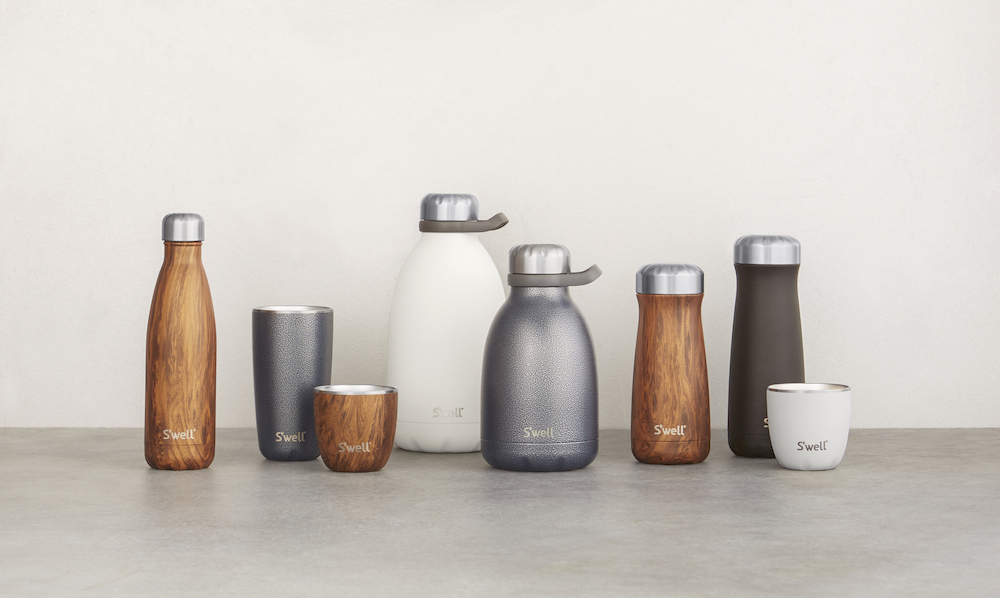
If you had the entire world’s ear right now, what would you say about our plastic pollution problem?
“Action is our friend and together we can do more by doing less. Here’s what I mean: the problem of plastic can be overwhelming. We’re bombarded with stats and stories that can create paralysis because you just don’t know where to begin or believe that your individual actions can make a difference. But they can. If we can find ways to simplify the challenge and offer easy solutions to act on, we’ll be able to get more people on board. That’s what we’re doing with the Million Bottle Project. We’re trying to educate people on the impact of single-use plastic bottles and the simple steps we all can take to reduce consumption.”
When you started S’well, how did you overcome the fear of losing it all?
“I so believed in the business I was creating and the good that S’well could do that it helped push any fear aside. I [also] had an amazing network of people who were willing to help me learn from their experience. This goodwill only made me that much more determined to be successful.”
What have been your biggest challenges growing S’well?
We had to on-board new people and new systems while trying to maintain quality and deliver an enormous amount of product around the world. We made it through the crises of unexpected growth and took a hard look at the business. We made some tough decisions about certain partnerships, created a few new relationships, further built our infrastructure, and basically recalibrated.”
You never raised funding. Why did you take that approach and how did you make it work?
“Using $30, 000 of my own funds was about being in control—growing the business the way I felt made the most sense for the brand. I wanted to keep the consumer at the forefront and not have to settle in an effort to grow the business quickly. Through patience, I was able to make it work. From the start, I wanted to position S’well as a premium brand and not just a reusable water bottle. It was—and is—a hydration accessory. This new concept took time to take off.”
What can we expect from S’well over the next year?
“We’ll be launching new accessories and some exciting new products, plus a range of fresh designs and collaborations. We’ll also be working with our partners, like UNICEF USA, RED, and Breast Cancer Research Foundation.”
Based on your experience and success as a true change creator, what key lessons would you share with a mentee?
“We all dream of growth, but if you don’t have the right people in place when it comes, it can be daunting. Having the right talent from the start will not only help you grow faster, but give you more agility when you’re punching above your weight.”
Speaking to Sarah Kauss is like getting a fresh injection of entrepreneurial spirituality.
She’s replacing industry analyses with determination, strategic triangles with optimism, and basic logic models with hope. That’s not to say she’s abandoned theoretical frameworks, only that she’s throwing all the optimism she has at them. And it’s working.
Stanford Business Review once called social entrepreneurship “a wave of creative destruction that remakes society.” When you’re dealing in drastic goals like AIDS and cancer, all the branding talent in the world can’t save you from compassion fatigue. Sarah Kauss seemed to understand that right from the start, so her secrets to success include patience and autonomy—and why shouldn’t they?
Entrepreneurship is about far more than just strategy. It is, at heart, a grand attempt at personal greatness, and Sarah Kauss is now one of America’s top female achievers. That means she has, indeed, achieved greatness. That greatness just happens to have pumped many of its profits back into the earth.
S’well’s core beliefs are “Sip well. Serve well. Sleep well.” That’s enough philosophy to turn a droll day into something brighter, and those tiny echoes of change are the figurative butterfly wings that cause hurricanes on the other side of the world.
The wind is already turning into a gale. Kauss’ 1 Million Bottle Project recently took the brand to the Sundance Film Festival, where 6,000 people took a pledge to abandon plastic bottles for a year. The product waltzed onto the pages of O Magazine, through Fashion Week, and into TED gift baskets.
It all began in 2001 when an unknown accountant named Sarah Kauss left for business school. That’s when the first plane hit the Twin Towers and the world became covered in thick, sticky dread.
The next year, Kauss opened her five-year journal and realized how far the world had come since September 11.
She had watched the world dig an impossible hope out of the ashes, which is why she can see beyond today’s smoggy horizon. And if Sarah can see the sun, maybe, just maybe, it’s because it is, indeed, rising.
Check out one of our favorite bottles!
Key Takeaways
- Rapid-fire start-up growth isn’t the only way to broach social entrepreneurship. Sometimes, slow and steady builds the strongest brand.
- Build a network of supporters who will fuel your determination during the first years of your business plan.
- Simple business plans can build empires if you develop a powerful brand identity.
- Sometimes preserving your vision is more important than preserving your bank account.
- Premium brands take time to take off.
- Prepare for growth by hiring people who can manage your mature business from the start.
Social causes require work, not complexity. People need small, achievable actions if they’re to be motivated to create change.
If you found this article helpful you might also like one of these…




